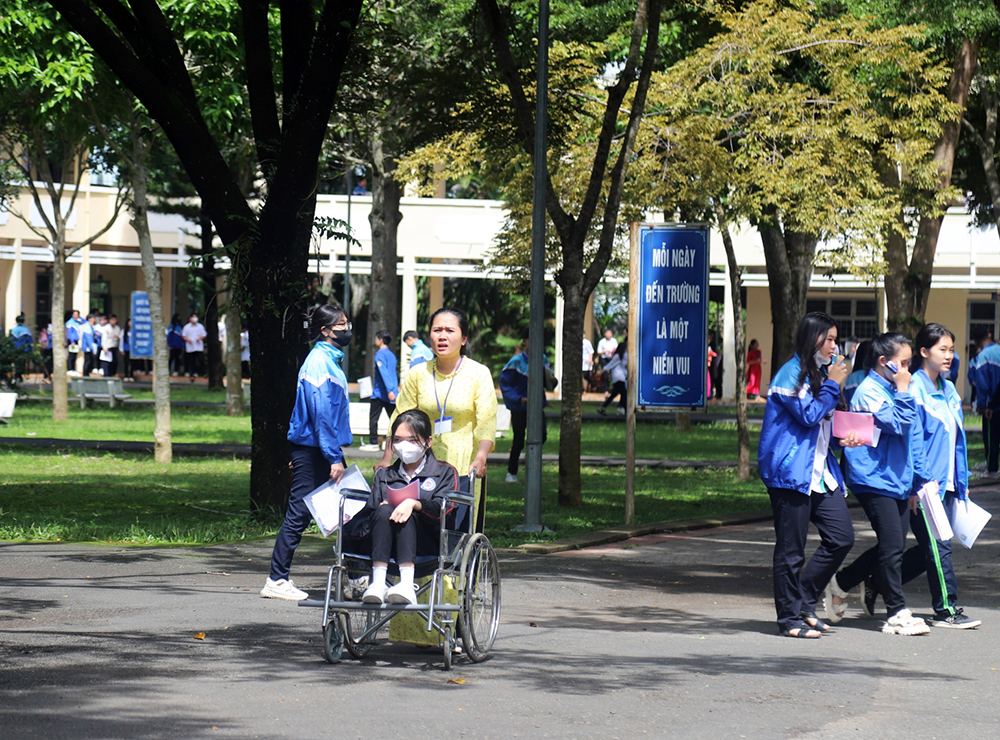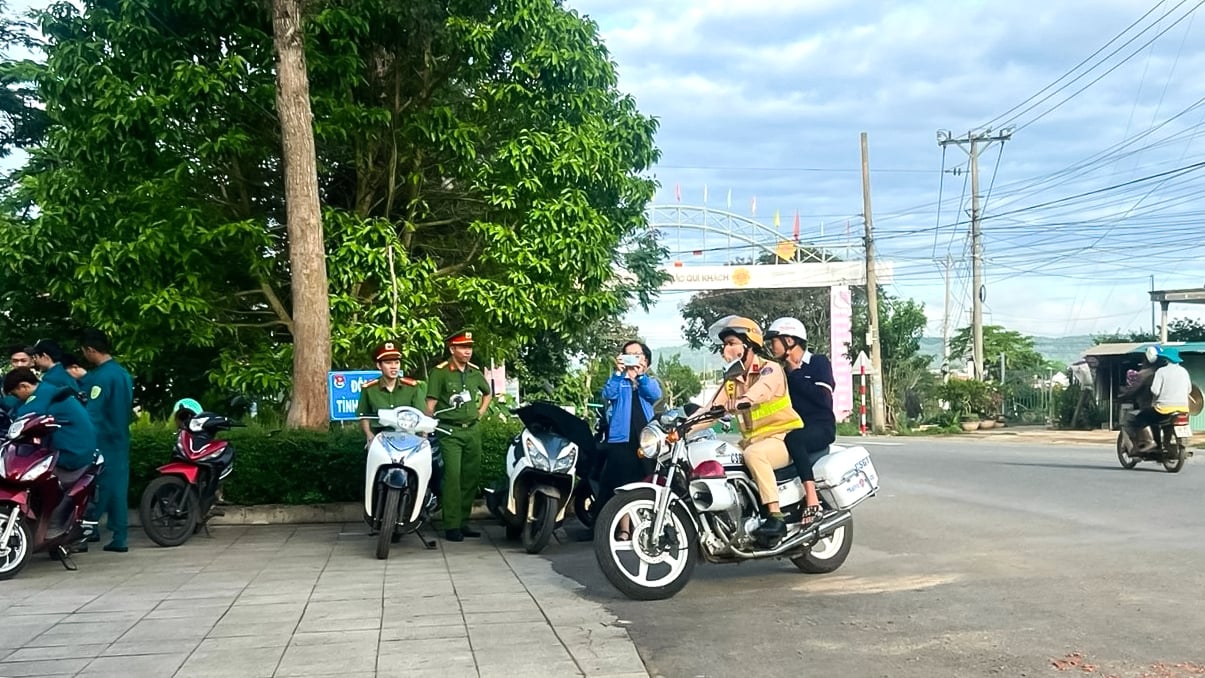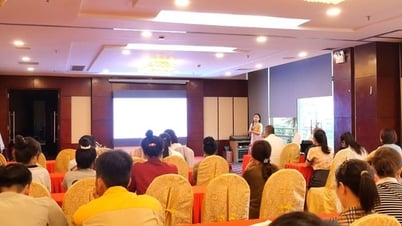In recent days, there has been a lot of unofficial information circulating on the internet, spreading at breakneck speed on uncensored social networking sites, fake websites, and even phone calls from people claiming to be "admissions officers" with a promising tone.
 |
| Leaders of Lam Dong Provincial People's Committee inspect preparations for the high school graduation exam at testing sites. |
• COMMON ADMISSION SCAMS
Many universities and authorities have warned about fraudulent tricks, promises of "guaranteed admission" to top schools, and "grade-fixing", causing significant economic and mental damage to families.
Fraudsters use many sophisticated tricks, taking advantage of the psychology of wanting their children to get the best results and get into the desired school. Below are typical fraud "traps" that candidates and parents need to be especially vigilant about:
Promises to "get into a hot school" or "buy points" to get into a "hot" school: This is a familiar trick, but many people still fall into the trap. The subjects claim to have "special" relationships with top schools, promising to "bribe" and "buy points" so that candidates are sure to get into majors and schools with extremely high admission scores. In return, the scammers ask parents to transfer a not-so-small "guarantee" amount of money.
 |
| Exam invigilators assist candidates who have had an accident to the exam room. |
Fake early admission notices: Taking advantage of the eagerness to know the results, scammers will send SMS messages, emails, or even call to inform candidates that they have been admitted to a certain university when there are no official results from the Ministry of Education and Training or the schools. Then, scammers ask for "preferential" admission fees in a short period of time to "reserve a spot". Candidates and parents need to be absolutely alert, all official admission notices must be publicly announced on the school's official website and follow the schedule of the Ministry of Education and Training.
Opening "special" exam preparation classes with fake commitments: Subjects advertise "crash" exam preparation classes, "right-for-you" exam preparation classes with "winged" promises such as helping candidates achieve perfect scores and get into their dream schools. However, the quality of these classes is often not guaranteed, even fake, and the main purpose is to collect illegal tuition fees. Choose reputable exam preparation centers with clear operating licenses and verify information carefully.
Fake information about "huge" scholarships: Fraudsters spread information about fake high-value scholarship programs, preying on parents and candidates who want to reduce the financial burden. These subjects often ask for detailed personal information or pay a non-refundable "application review" fee. All official scholarship information is published on the websites of reputable schools and organizations. Carefully check the source of the information before providing any personal or financial data.
 |
| Traffic police promptly assisted candidates to arrive at the exam site on time. |
Many universities have issued warnings about the increase in enrollment fraud during this period. Representatives of the universities have affirmed that all official enrollment information, including enrollment quotas, enrollment methods, application submission times and locations, and admission results, are published transparently and exclusively on the official website and mainstream media channels.
• WHAT TO DO TO AVOID FALLING INTO A SCAM TRAP?
To protect yourself and your family from sophisticated scams, admissions experts and authorities make the following recommendations:
Only trust official sources of information: Always check and compare admission information on the official website of the Ministry of Education and Training and the admission websites of the universities and colleges that candidates are interested in.
Never transfer money to strangers: Any individual or organization that claims to be able to "take care" of admission procedures and asks for money is a sign of fraud.
 |
| In recent years, the high school graduation exam at Lam Dong Examination Council has been safe and serious. |
Beware of "sky-high" promises: Unfounded offers and commitments on social networks, from strange phone numbers, and emails of unknown origin should be especially wary. Always ask questions and verify information.
Personal information security: Do not provide sensitive personal information (ID number/CCCD, bank account, password...) to anyone of unknown identity or to untrustworthy websites or applications.
Contact immediately in case of doubt: If candidates or their families have any doubts about the admission information, immediately contact the admissions department of that university/college or the local police agency for timely verification and support.
Source: https://baolamdong.vn/xa-hoi/202505/thi-sinh-can-canh-giac-voi-cac-thu-doan-lua-dao-truc-tuyen-mua-thi-tot-nghiep-thpt-2025-04d4d92/


![[Photo] A delegation of 100 journalists from the Vietnam Journalists Association visits the soldiers and people of Truong Sa island district.](https://vphoto.vietnam.vn/thumb/1200x675/vietnam/resource/IMAGE/2025/5/30/0984a986227d4e988177f560d2e1563e)



![[Photo] Prime Minister Pham Minh Chinh attends the event "Digital transformation of the banking industry by 2025"](https://vphoto.vietnam.vn/thumb/1200x675/vietnam/resource/IMAGE/2025/5/29/0e34cc7261d74e26b7f87cadff763eae)



















































































Comment (0)